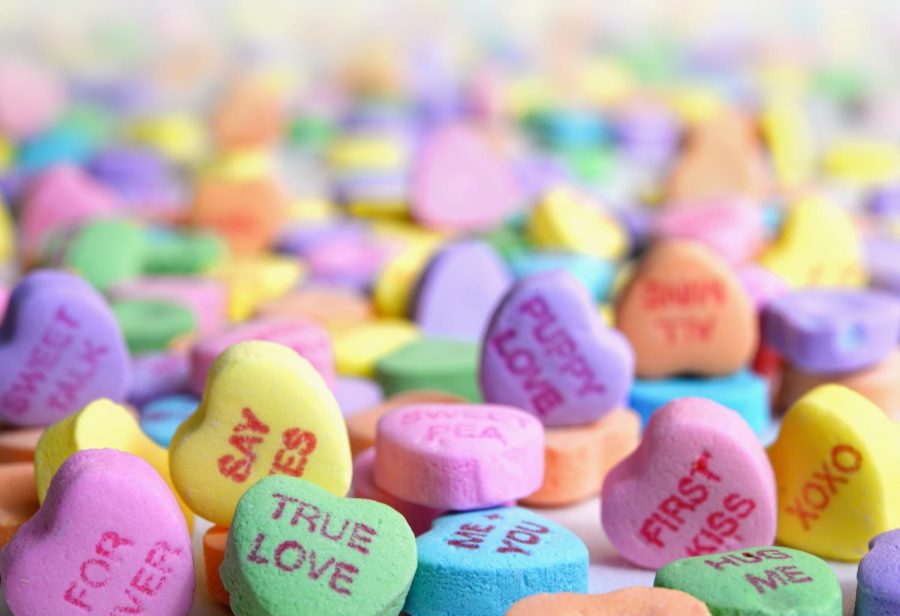Give me a break, Hallmark
unsplash
Conversation hearts are one of the most popular candies that are associated with Valentine’s Day
Valentine’s Day is right around the corner, which means that we’ve already started to see stores filled with heart-shaped boxes of chocolate, teddy bears, and candy hearts.
If you’re single, Valentine’s Day can be an annoyance. It’s an over-the top holiday that celebrates something you don’t have. For people who are actively seeking to be in a relationship, you might feel like seeing happy couples is forced down your throat. For people who aren’t, it might still be kind of irritating.
I know that many people celebrate Valentine’s Day for a variety of reasons; people use Valentine’s Day to celebrate love for other important people in their lives.
However, a lot of Valentine’s Day’s sweet sentiment is destroyed by the over-commercialization of the holiday. Once New Years is over, stores need another holiday to use to sell products. So they jump a month and a half ahead to Valentine’s Day.
Walgreens is stuffed with pink and red Cupid-clad displays. Valentine’s Day products line the front aisles of Target. Even New Trier will decorate the Scrounge with heart-shaped decorations.
There’s a reason why Valentine’s Day is sometimes referred to as the “Hallmark Holiday.” Companies like Hallmark, among others, have taken Valentine’s Day and ran with it. Every year they sell a plethora of overpriced Valentine’s Day products. These companies promote the idea of consumer spending as genuine love. Sure, a five dollar Valentine’s card is cute, but how is it meaningful?
But this strategy works. According to the National Retail Federation, individual consumers spent an average of almost $165 on Valentine’s Day gifts last year, an amount that seems unreasonably high to high schoolers who would expect to spend very little, if anything. Total spending was projected to be around $21.8 billion throughout the U.S.
A large part of the reason that Valentine’s Day has turned into such an uncomfortable holiday is because corporations emphasize the romantic aspect of love so much. Most of the Valentine’s Day products sold are marketed towards couples, some for parents and children, but nothing sold for friends to give to each other.
Valentine’s Day would be fine on its own as a day to celebrate love, but the commercialization of the holiday has ruined it. Companies commercialize love and relationships and force them to look a certain way, which can make consumers feel bad if they don’t fit inside that box.
While it’s important to celebrate the love in your life and let those you love know that you appreciate them, the way that Valentine’s Day presents these values is off-putting to me.
I do love those Feb. 15 chocolate sales, though.







































